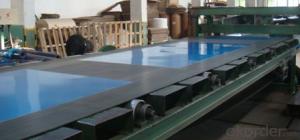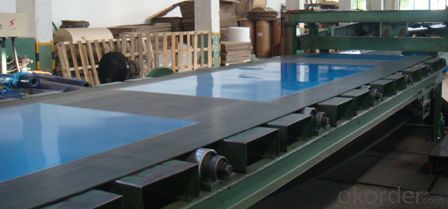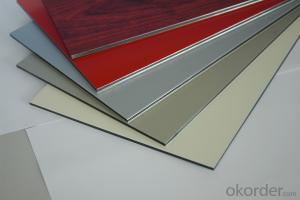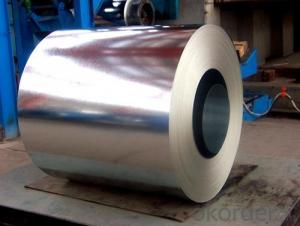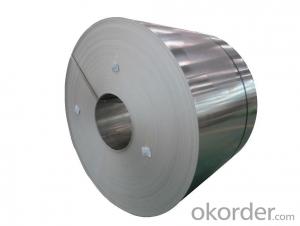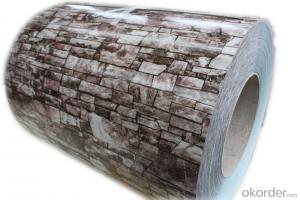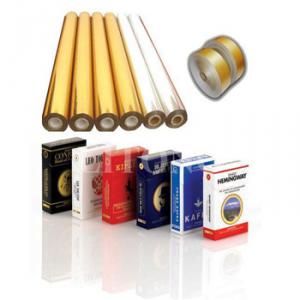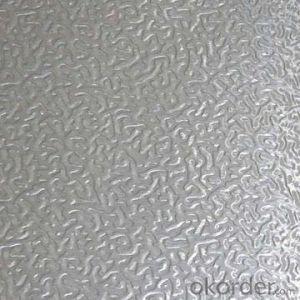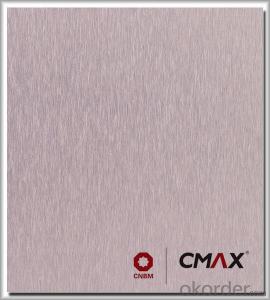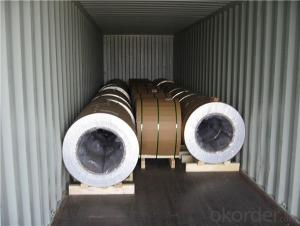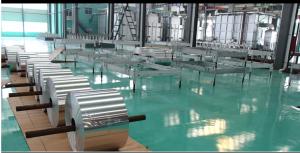Dollar Tree Aluminum Foil Sheets for Building Usage
- Loading Port:
- Shanghai
- Payment Terms:
- TT OR LC
- Min Order Qty:
- 1 m.t
- Supply Capability:
- 5000 m.t/month
OKorder Service Pledge
OKorder Financial Service
You Might Also Like
The heat treatable alloys of 2000, 6000 and 7000 are such that when subjected to thermal temperatures, they again pronounced strengthening. Hence, tempers are indicated by "T". These alloys are also inventoried in clad form to increase corrosion resistance. All of the aluminum alloys are available in the annealed condition or commonly referred to as "O".
Aerospace - 2024, 6013, 6061, 7075
Construction - 3003, 5052, 6061
Electrical and Chemical Applications - 1100
General Machining Applications - 3003, 5052
Thickness from 0.2mm to more than 200mm are available for your needs. Lingfeng Aluminum can process to your special requirements and support traceability with complete Mill Test Certificate(MTC) and the essential industry specifications. More details as following
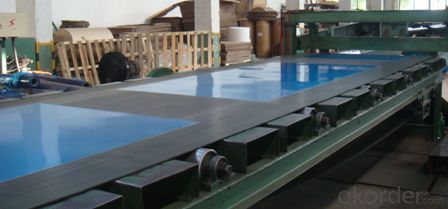
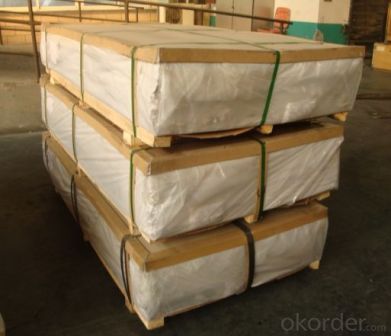
- Q: Can aluminum sheets be laminated?
- Yes, aluminum sheets can be laminated. Lamination is a process of bonding multiple layers together to create a composite material with enhanced properties. In the case of aluminum sheets, they can be laminated with other materials such as plastics, adhesives, or even other metals. This process can improve the strength, durability, and thermal or electrical conductivity of the aluminum sheets. Laminated aluminum sheets are commonly used in various industries, including construction, automotive, aerospace, and packaging, where the combination of different materials provides the desired characteristics for specific applications.
- Q: What are the standards and certifications available for aluminum sheets?
- There are several standards and certifications available for aluminum sheets, ensuring their quality and compliance with industry requirements. Some of the commonly recognized ones include: 1. ASTM International Standards: The American Society for Testing and Materials (ASTM) has developed a range of standards specifically for aluminum and aluminum alloys. These standards cover various aspects such as chemical composition, mechanical properties, and dimensional tolerances, ensuring consistent quality across different aluminum sheet products. 2. ISO 9001: The ISO 9001 certification is a globally recognized standard for quality management systems. Aluminum sheet manufacturers that are ISO 9001 certified have demonstrated their commitment to meeting customer requirements, continuous improvement, and adherence to strict quality control processes. 3. ASME Standards: The American Society of Mechanical Engineers (ASME) has established specific standards for aluminum sheet materials used in pressure vessels, piping, and other applications. These standards ensure the safety and reliability of aluminum sheets in critical applications. 4. MIL-Specifications: The United States Department of Defense (DoD) has developed military specifications (MIL-Specs) for various materials, including aluminum sheets. These specifications define the requirements for military-grade aluminum sheets, ensuring their suitability for specific defense applications. 5. EN Standards: The European Committee for Standardization (CEN) has developed a series of European Norm (EN) standards for aluminum and aluminum alloys. These standards cover various aspects such as chemical composition, mechanical properties, and surface finishes, ensuring compatibility and consistency across the European market. 6. RoHS Compliance: Restriction of Hazardous Substances (RoHS) compliance is crucial for aluminum sheets used in electrical and electronic equipment. This certification ensures that the aluminum sheets do not contain hazardous substances such as lead, mercury, cadmium, and certain flame retardants, thus guaranteeing their environmental safety. It is important for manufacturers and suppliers of aluminum sheets to comply with these standards and certifications to ensure the highest quality, safety, and suitability of their products for specific applications.
- Q: Are 101 aluminum sheets suitable for chemical processing environments?
- No, 101 aluminum sheets are not suitable for chemical processing environments as they are not corrosion-resistant and may react with certain chemicals, leading to potential damage or contamination.
- Q: What is the weight of aluminium plate now?
- The following is the density of each series of aluminum sheets for reference.Pure aluminum 2.7 TC7 4.4Antirust aluminium LF2, LF43 2.68, TC8 4.48LF3 2.67 TC9 4.52LF5, LF10, LF11 2.65, TC10 4.53LF6 2.64 pure nickel, anode nickel, electric vacuum nickel 8.85LF21 2.73, nickel, copper, nickel, magnesium, nickel silicon alloy 8.85Hard aluminium, LY1, LY2, LY4, LY6 2.76, Ni Cr alloy 8.72LY3 2.73 (Zn0.1, Zn1, zinc, Zn2, Zn3) 7.15LY7, LY8, LY10, LY11, LY14 2.8, cast zinc 6.86LY9, LY12 2.78, 4-1 casting zinc aluminum alloy 6.9LY16, LY17 2.84, 4-0.5 casting zinc aluminum alloy 6.75Wrought aluminium LD2, LD30 2.7 lead and lead antimony alloy 11.37LD4 2.65 lead anode plate 11.33LD5 2.75
- Q: What does aluminum plate "3003-H24" mean?
- According to the main alloy aluminum alloy elements can be divided into 2 * * * for Al Cu alloy aluminum (Al--Cu), 3 * * * aluminum manganese alloy aluminum (Al--Mn), 4 * * * series of aluminum silicon alloy aluminum (Al--Si), 5 * * * for aluminium magnesium alloy aluminum (Al--Mg). 6 * * * for Al Mg Si alloy aluminum (AL--Mg--Si), 7 * * * for aluminum and zinc alloy aluminum [AL--Zn--Mg-- (Cu)].Aluminum status: 1, F: free machining status. 2 and O: annealed condition 3 and H: work hardening state. 4, W: solid solution heat treatment state. 5, T: heat treatment state.
- Q: some car manufactures use aluminium car body on a steel sub-frame. explain, using electrode potential what would happen if a weak acid was to become trapped in the space between these two metals!! any current plzz help, its for my assignment, and i dont understand
- Chemistry is all about how atoms exchange electrons. Some kinds like electrons better than others, and this is the basis of electrochemistry and Redox reactions. It all starts with the acid: HAcid - H(+) + Acid(-) The important thing is the H(+) ion, which is positive because it is a Hydrogen atom which has lost an electron. This leaves it with a positive charge, since it is nothing but a positive proton at this point. Fe + 2H(+) - Fe(+2) + H2 The above is a typical reaction between an acid and most metals. The H(+) ions strip an electron from the metal to form a metal ion and Hydrogen gas. What has happened is the Hydrogen ions have oxidized the Iron. The Iron in turn has reducted the Hydrogen. In terms of electrochemistry, there are two half reactions going on simutaneously. First, the Iron atoms generate two negative electrons: Fe - Fe(+2) + 2e(-) = OXIDATION OF IRON Then the Hydrogen ions combine with the electrons to form Hydrogen gas: 2H(+) + 2e(-) - H2 = REDUCTION OF HYDROGEN Note that in both reactions, the charges are equal on either side of the reaction. The next part of this process happens when the Iron ions come into contact with the Aluminum metal: 3Fe(+2) + 2Al - 2Al(+3) + 3Fe Note the Iron ions are recting exactly the same way the Hydrogen ions did. In other words, they are oxidizing the Aluminum. The Aluminum is now reducing the Iron. The net result of this is that the acid rusts the Iron and then the Iron rusts the Aluminum. The end result is the production of tiny amounts of Hydrogen gas, The Iron being displaced from where it had initially been, and the solid Aluminum discintegrating into some form of Aluminum salt. Calculations involve something called an electrochemical series and the voltage is given using the Nerst equation. Both the electrochemical table and the equation can be found in any chemistry textbook.
- Q: This question asks whether it is possible to utilize stamped or embossed aluminum sheets for a specific project.
- <p>Yes, you can use stamped or embossed aluminum sheets in your project. These sheets are known for their strength, durability, and lightweight properties, making them ideal for various applications such as construction, automotive, and aerospace. Stamped aluminum sheets are formed by pressing the material into a specific shape, while embossed sheets have a raised pattern. Both types offer design flexibility and can be customized to meet specific project requirements. Ensure that the aluminum sheets you select meet the necessary specifications for your project, such as thickness, strength, and finish.</p>
- Q: Can aluminum sheet be used for food contact applications?
- Yes, aluminum sheet can be used for food contact applications. Aluminum is a safe and commonly used material for food packaging and cooking utensils due to its non-toxic properties, resistance to corrosion, and ability to maintain food quality and freshness.
- Q: This question asks for a list of various types of aluminum profiles that are typically used in conjunction with aluminum sheets.
- <p>Aluminum profiles are extruded shapes commonly used with aluminum sheets for various applications. The different types include: 1. Angle profiles, which are used for corners and edges. 2. Channel profiles, suitable for creating channels or frames. 3. T-slot profiles, ideal for modular systems requiring adjustable components. 4. U-channel profiles, used for covering edges and creating frames. 5. H-profiles, often used in structural applications. 6. Flat bar profiles, used for simple straight edges. 7. Round and square tube profiles, used for structural support and design elements. 8. Special profiles, which are custom-made for specific applications. These profiles are chosen based on the structural needs and design requirements of the project.</p>
- Q: Can aluminum sheet be used for cookware?
- Yes, aluminum sheet can be used for cookware. Aluminum is a popular choice for cookware due to its excellent heat conductivity and lightweight properties. However, it is usually combined with other materials, such as stainless steel or non-stick coatings, to enhance its durability and prevent any potential reactions with certain foods.
Send your message to us
Dollar Tree Aluminum Foil Sheets for Building Usage
- Loading Port:
- Shanghai
- Payment Terms:
- TT OR LC
- Min Order Qty:
- 1 m.t
- Supply Capability:
- 5000 m.t/month
OKorder Service Pledge
OKorder Financial Service
Similar products
Hot products
Hot Searches
Related keywords
